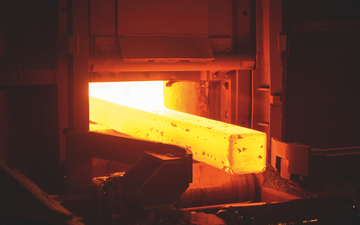- Official BOC UK Online | Industrial Gases | Products & Solutions | BOConline UK
-
Shop
- Industries
- Processes
- Gases & Equipment
-
Solutions
-
Services
-
Health & Safety
-
Contact & Support
- What's Happening
-
Net Zero Strategies
Decarbonisation: No-regrets Pathways to Hydrogen
Posted by BOC

There are high hopes for hydrogen and the role it can play in decarbonising our economy. These hopes are well founded. We have zero-emission vehicles running today, fuelled by green hydrogen. Demonstration projects have shown that we can use hydrogen to make green steel, decarbonise glassmaking and many other high-temperature industries such as ceramics production and minerals processing. As far as hydrogen goes, it’s time to believe the hype.
So, where’s the catch? Despite hydrogen’s potential, the UK’s net-zero ambition raises some important questions. The Government’s stated aim is to achieve 10 gigawatts (GW) of low-carbon hydrogen - which at least half of which will come from renewable energy for its production - by 2030. Currently, only 1% of the world’s hydrogen is produced using renewable energy. And the UK’s electrolysis production capacity is estimated at just 20-30 megawatts (MW). Bridging that gap will require hugely focused effort and investment.
Bridging the hydrogen gap
While fuel-switching to hydrogen is the long-term solution for many hard-to-abate processes such as steel, glass and cement production, there are other proven existing technologies that we can use to reduce energy consumption and carbon emissions today. These are ‘no-regrets/low-regrets’ strategies that can help businesses take the first steps toward reducing carbon emissions.
Fuel-switching and intensifying processes When devising a decarbonisation strategy, it makes sense to do the easier things first. Being more efficient with the use of any fuel falls into that category as using less fuel emits less carbon.
Process intensification is the key to doing more with less. One approach is to burn a fuel using pure oxygen, or a mixture of oxygen and recirculated flue gas, instead of air. This approach intensifies the combustion process, which reduces fuel consumption and can deliver better temperature uniformity. Depending on the nature of the process it is possible to reduce fuel consumption by between 10% and 50%, with a consequent reduction in carbon.
Other applications that burn natural gas may be candidates for a ‘blending’ approach to fuel switching where hydrogen is mixed with the natural gas before combustion. Trials in the UK are underway to demonstrate that blending up to 20% volume of hydrogen with natural gas is a safe and lower-carbon alternative for home cooking and heating appliances.
Carbon capture
For some industries, carbon capture, utilisation and storage (CCUS) is currently the only option available for decarbonisation. CCUS involves the capture of CO2 from the industrial process and is gaining more traction as a decarbonisation technology for industry and power generation. There are several technology choices available for carbon capture, broadly categorised as either pre-combustion, oxy-fuel and post-combustion. BOC has experience of all three approaches and can best assess and determine the most cost-effective approach for a particular carbon-emitting process.
Mobility
Transport accounts for over a quarter of the UK’s emissions so it remains a prime target for urgent decarbonisation. The automotive industry is building momentum around delivery of a growing range of battery electric vehicles (BEV), primarily targeting private motorists.
However, larger vehicles such as buses, HGVs and trains require much larger capacity and heavy batteries, which restrict their range. With high energy density and refuelling capable of being carried out from a dispensing pump in minutes to provide a range of hundreds of miles, hydrogen is a proven alternative fuel. BOC is helping many UK councils and local authorities to develop hydrogen refuelling stations to provide back-to-base refuelling for bus fleets and maintenance vehicles, including gritter and refuse trucks.
While low-carbon hydrogen will play a major part in decarbonising many industries, there is no one-size-fits-all solution. In working with businesses across multiple sectors BOC has learned that different users almost always require tailored solutions.
As the UK’s largest supplier of industrial gases, with proven experience in helping to decarbonise industry and mobility sectors, BOC is well placed to support your decarbonisation plans.
